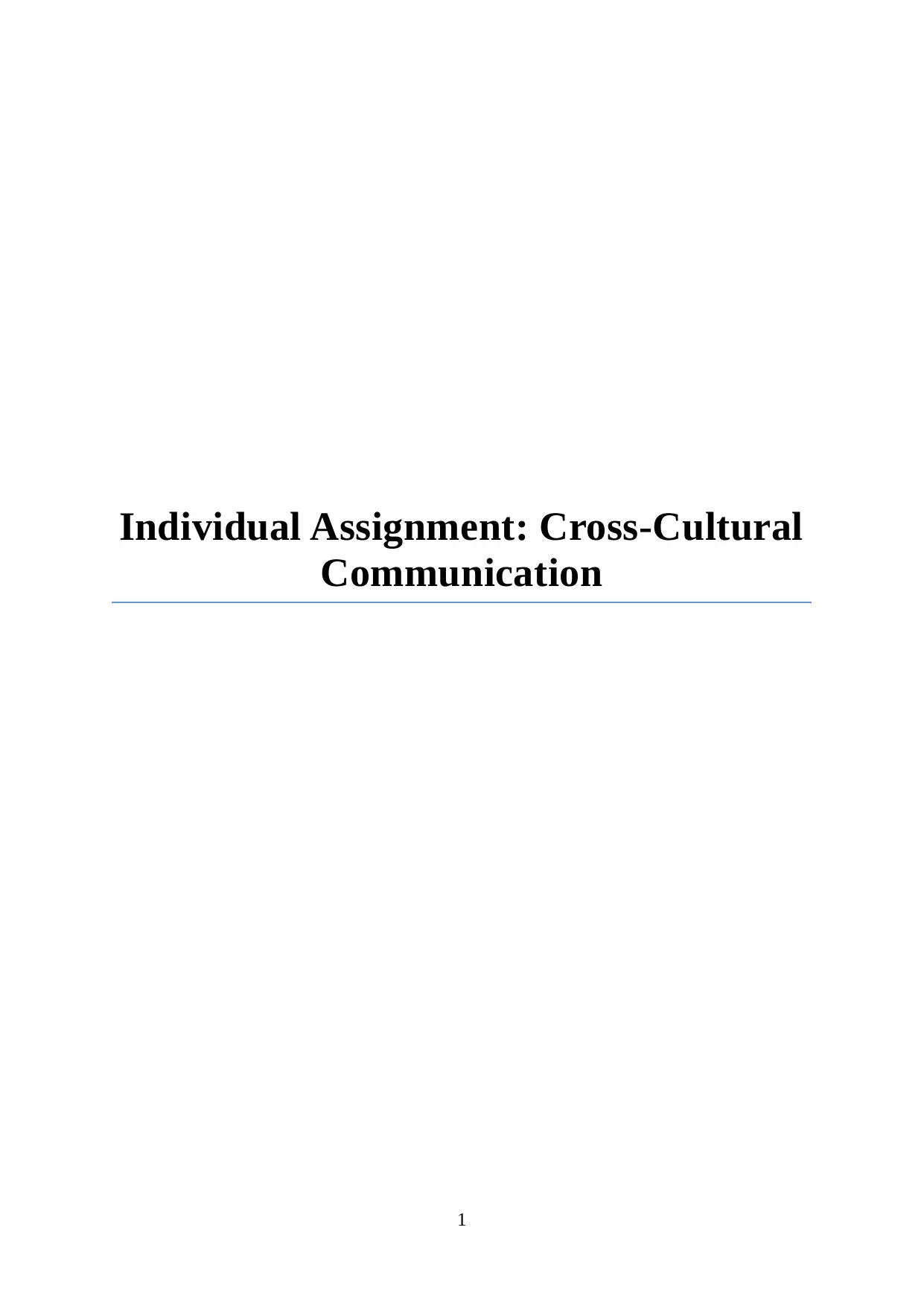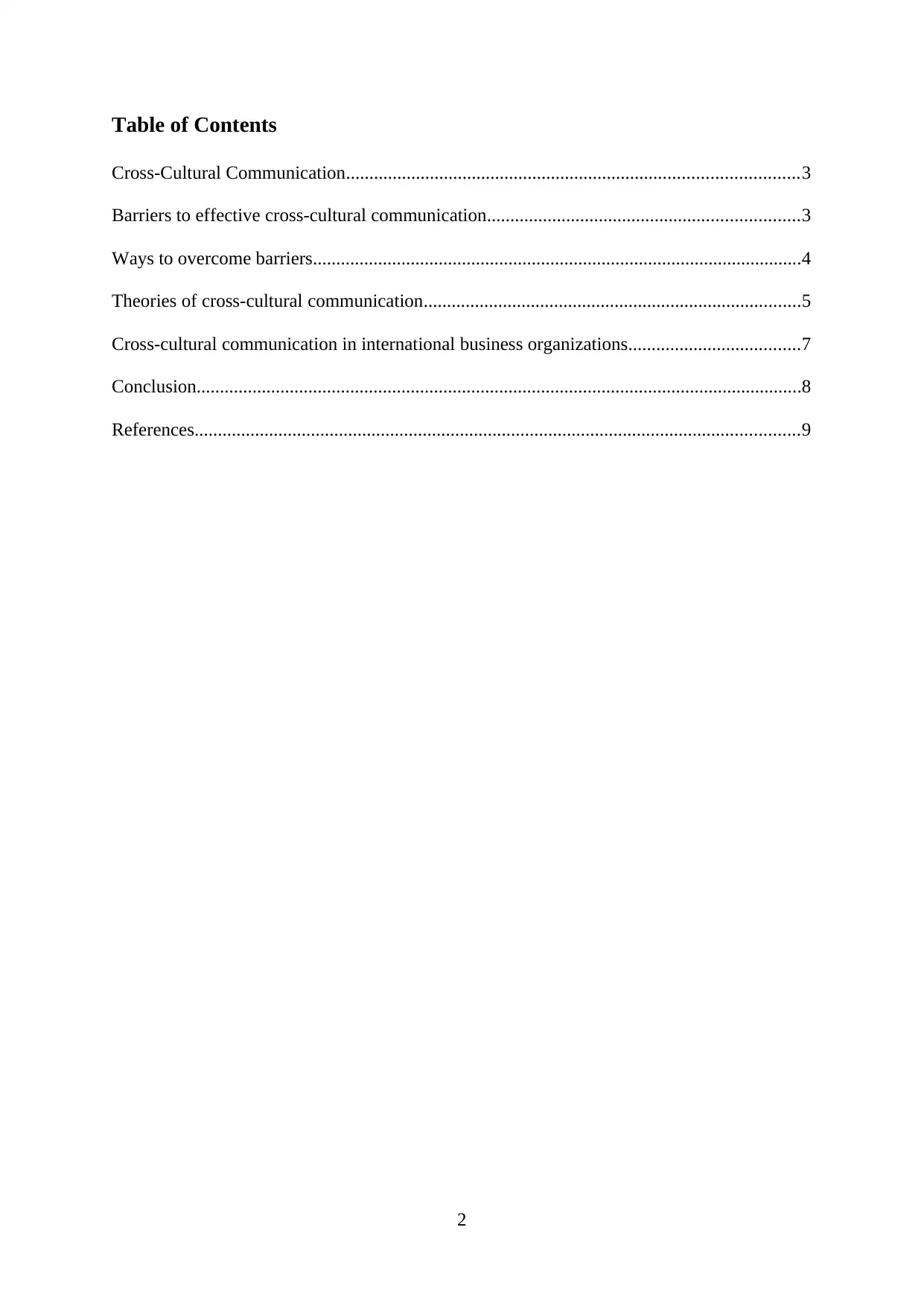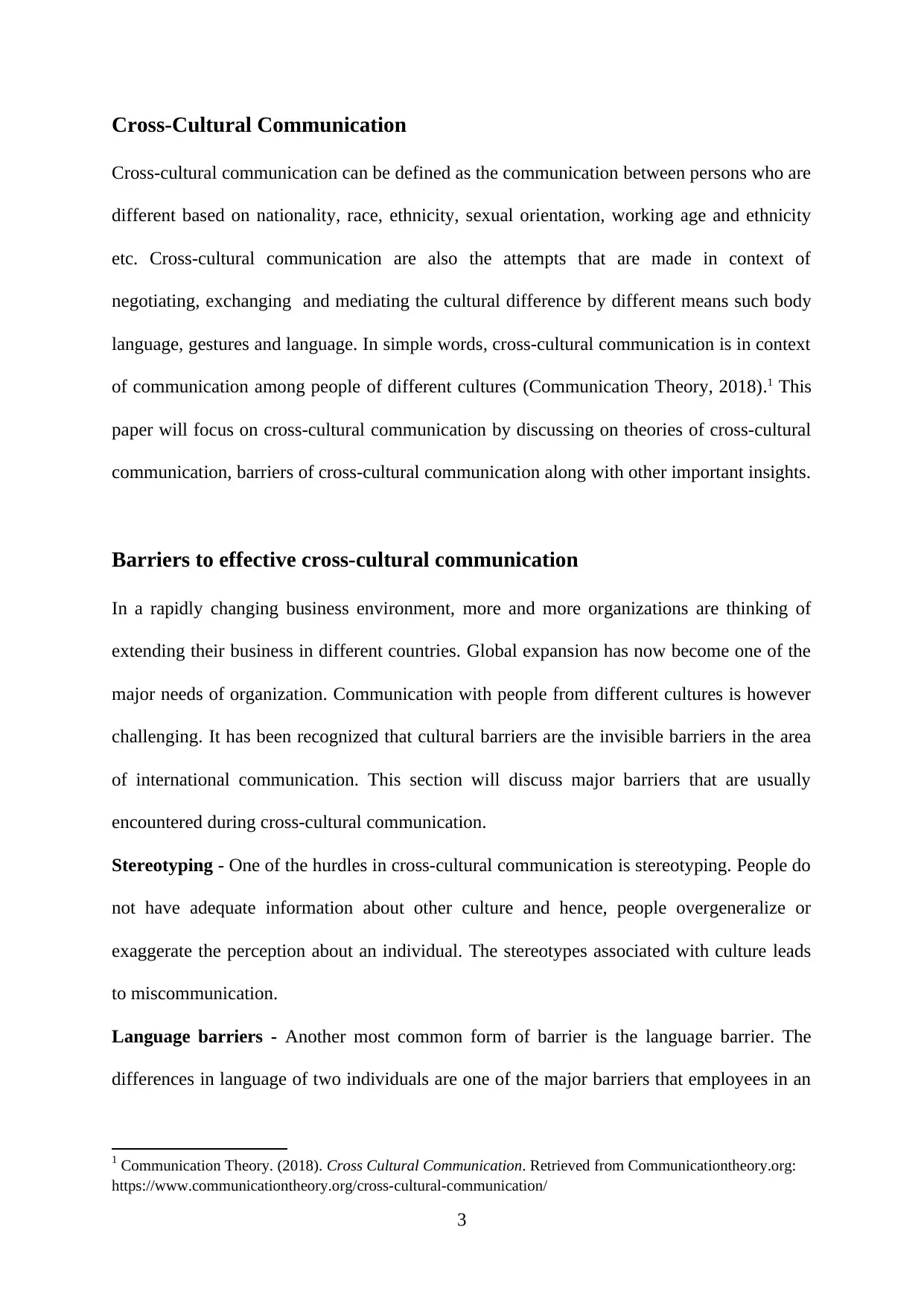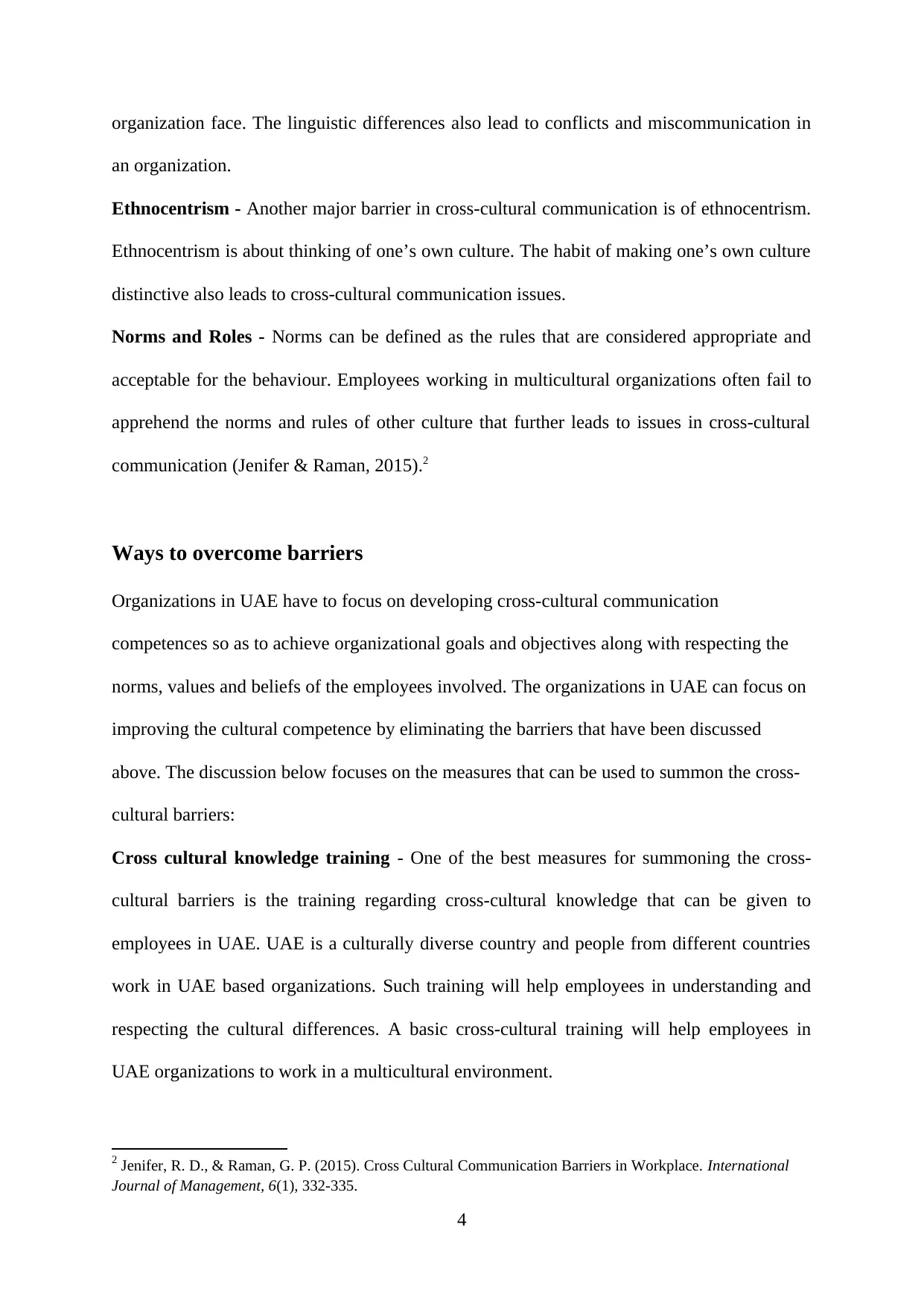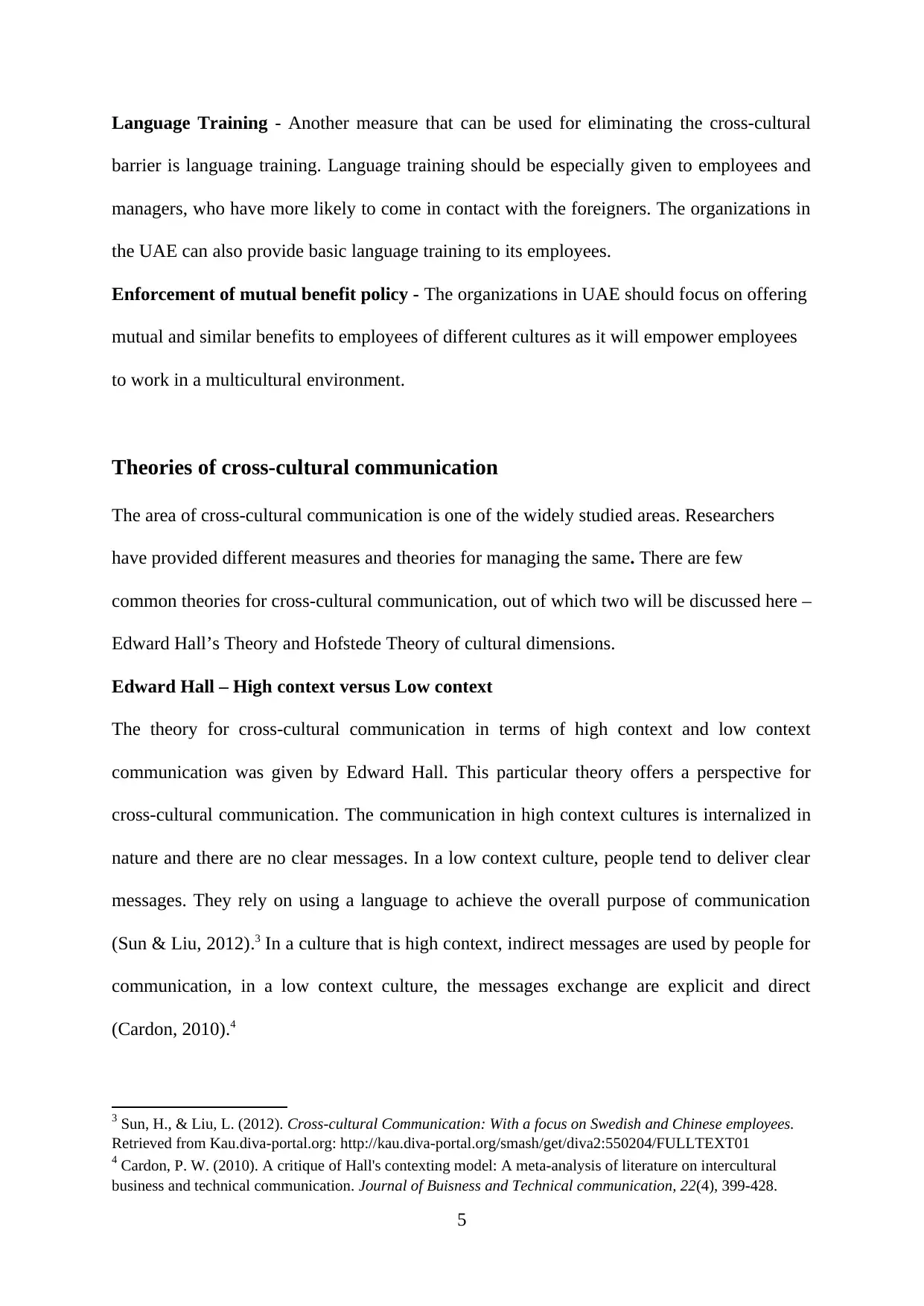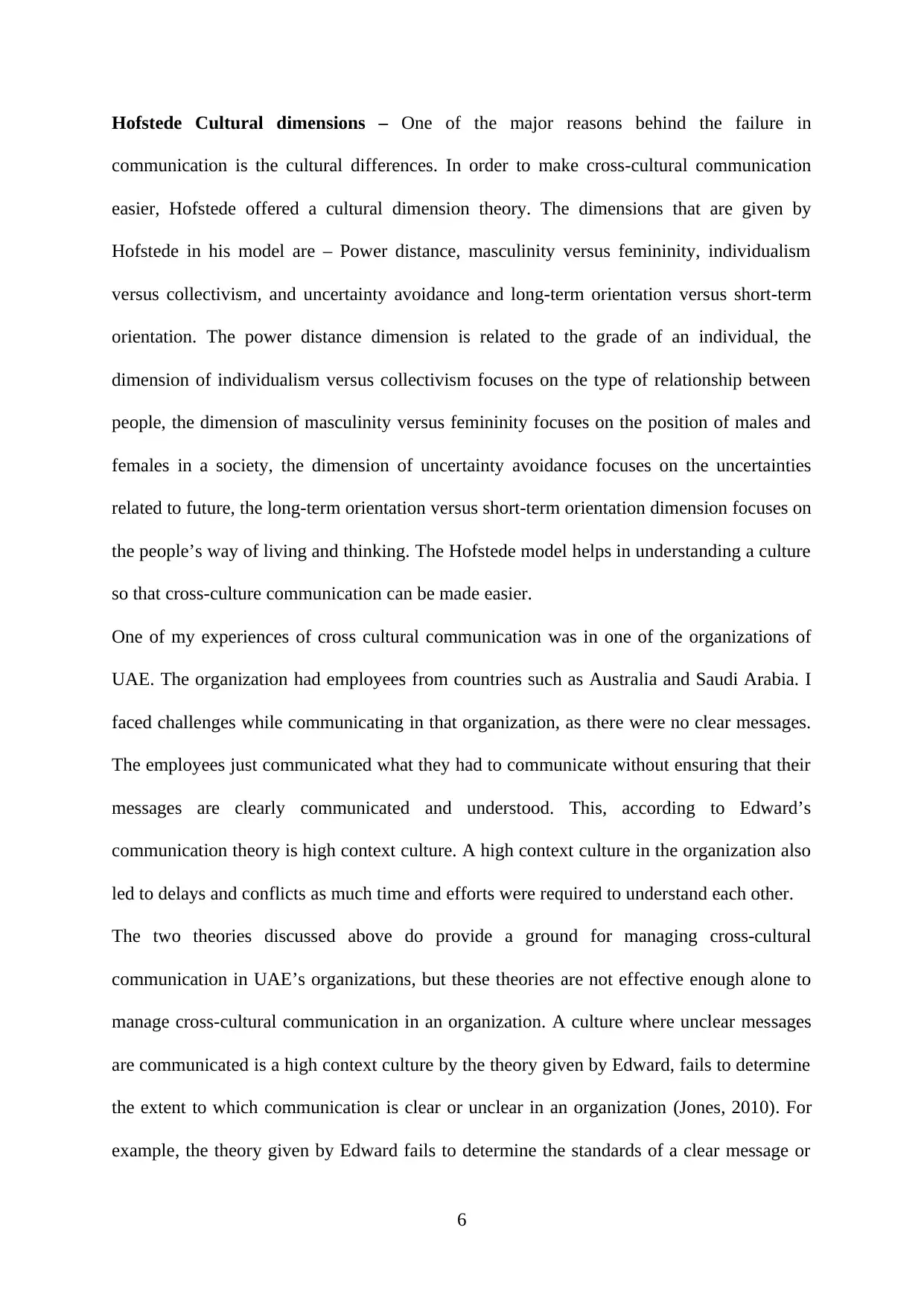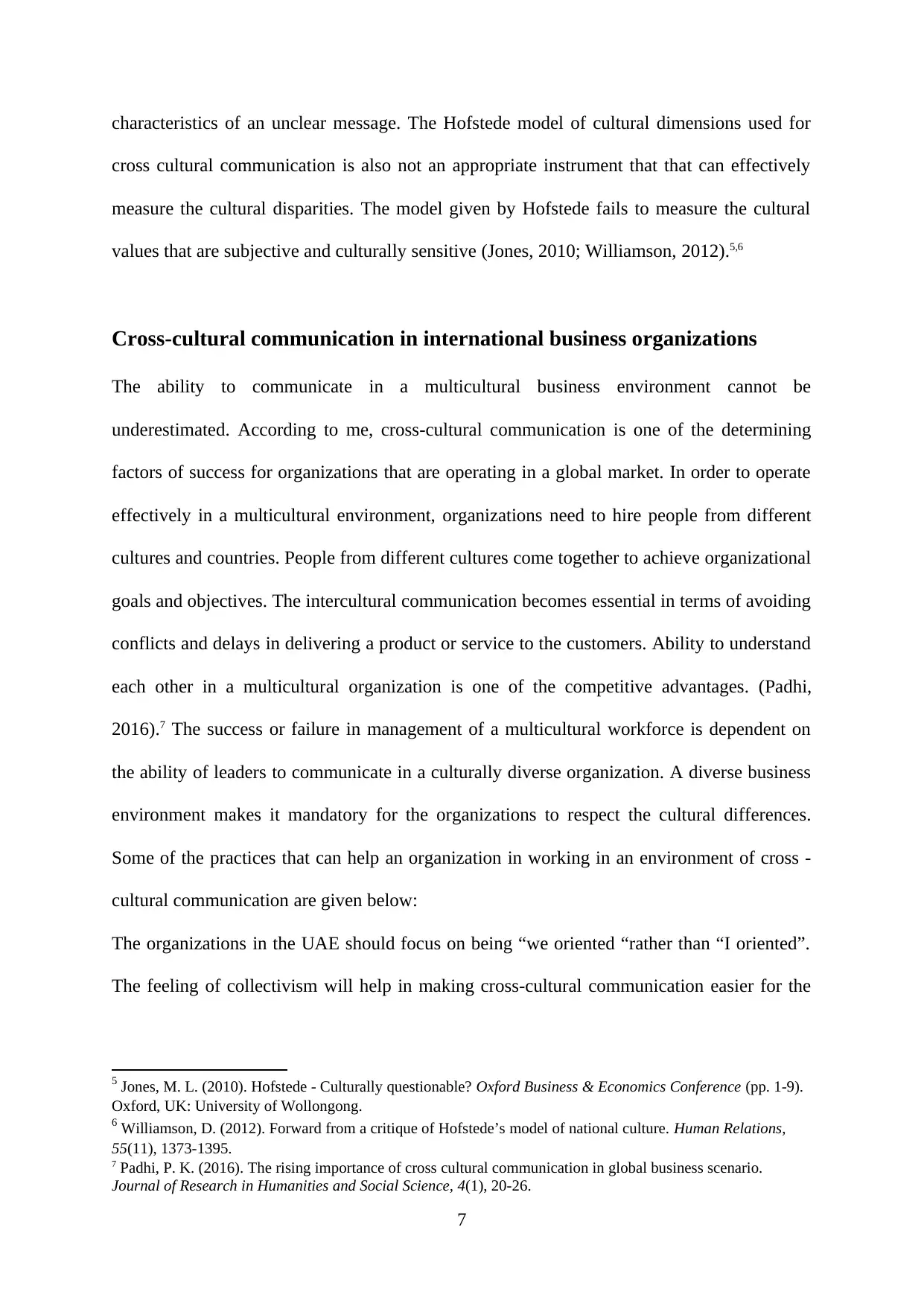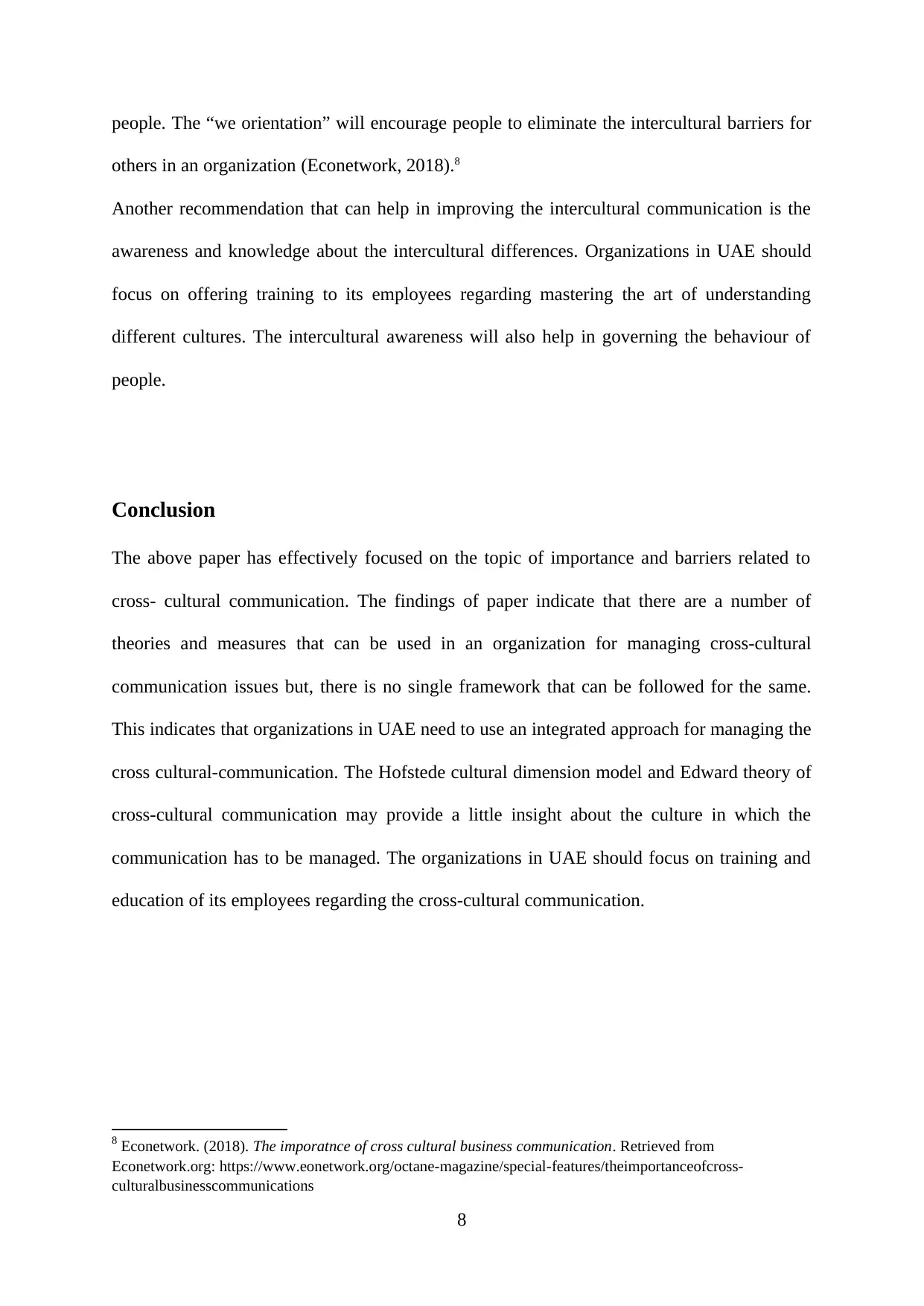This paper discusses the concept of cross-cultural communication, including barriers, ways to overcome them, theories, and its importance in international business organizations. It explores the challenges faced in cross-cultural communication, such as stereotyping, language barriers, ethnocentrism, and norms and roles. It also suggests ways to overcome these barriers, such as cross-cultural knowledge training, language training, and enforcement of mutual benefit policy. The paper further delves into theories of cross-cultural communication, including Edward Hall's theory of high context versus low context communication and Hofstede's theory of cultural dimensions. Lastly, it highlights the importance of cross-cultural communication in international business organizations and provides recommendations for effective communication in a multicultural environment.
![[object Object]](/_next/static/media/star-bottom.7253800d.svg)
![[object Object]](/_next/static/media/star-bottom.7253800d.svg)
